On the Yinka Ilori trail
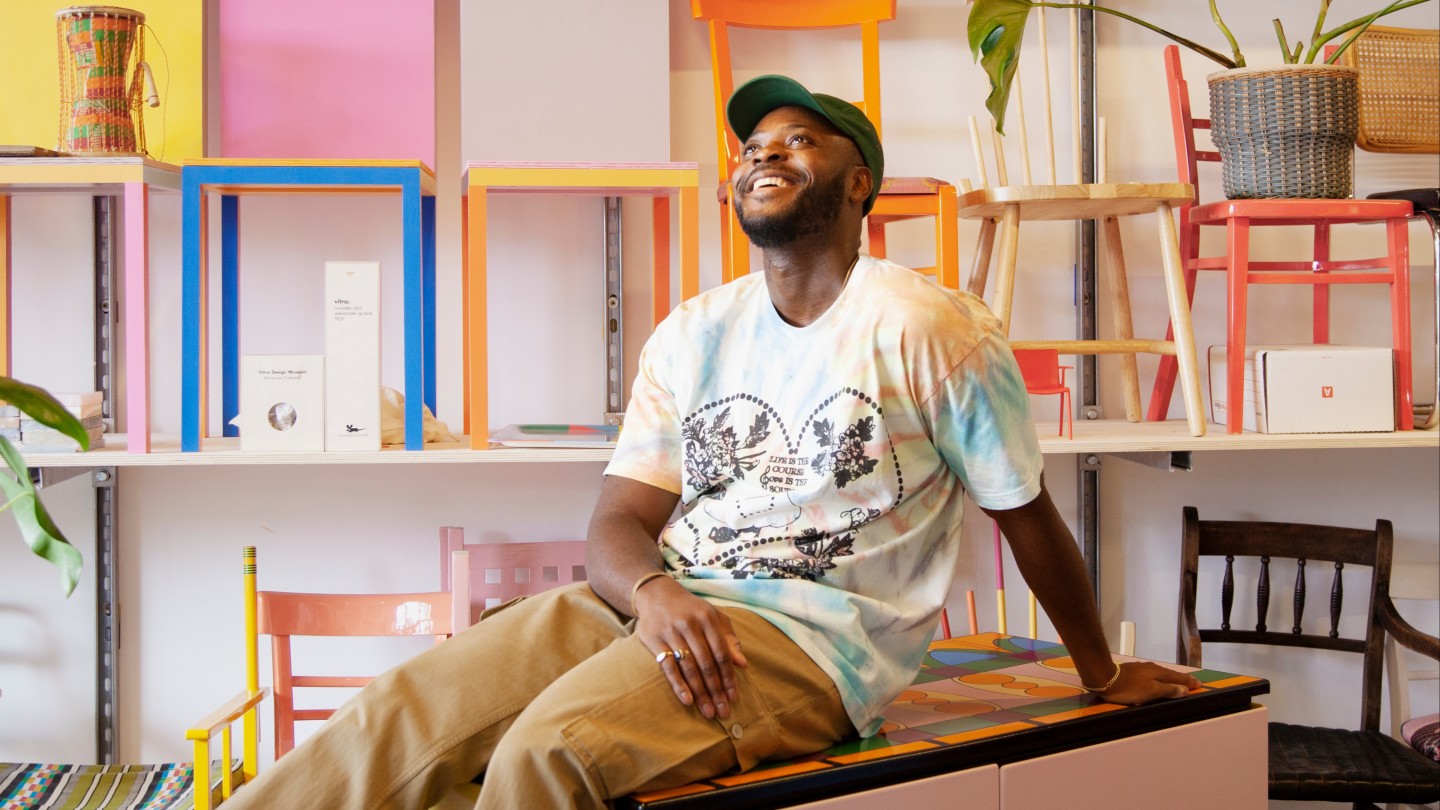
Roula Khalaf, Editor of the FT, selects her favourite stories in this weekly newsletter.
The west London studio of Yinka Ilori is an immaculate record of his visual life. In one corner, there’s a small but perfectly formed workshop bench dedicated to the paints that form the basis of his experiments with colour. A bank of four desks dotted with plants is flanked by narrow walls. One houses more than 40 of the joyfully reimagined chairs that made his name; the other, lined with works-in-progress, is filled with myriad references, African masks, textile swatches and ceramics.
Neat stacks of books spanning Banksy, Sou Fujimoto, Marimekko and Mike Tyson’s autobiography speak to his eclectic inspirations. It’s a remarkably compact operation, especially considering the scope of the 33-year-old’s output, which includes chairs, cabinets, book covers, bridges, skateparks, playgrounds and “Happy House”, the playful Chelsea store of the fashion designer Mira Mikati. The same spick-and-span spirit that permeates every corner of his studio is mirrored in the precise and clean-lined patterns that have come to define his exuberant aesthetic.
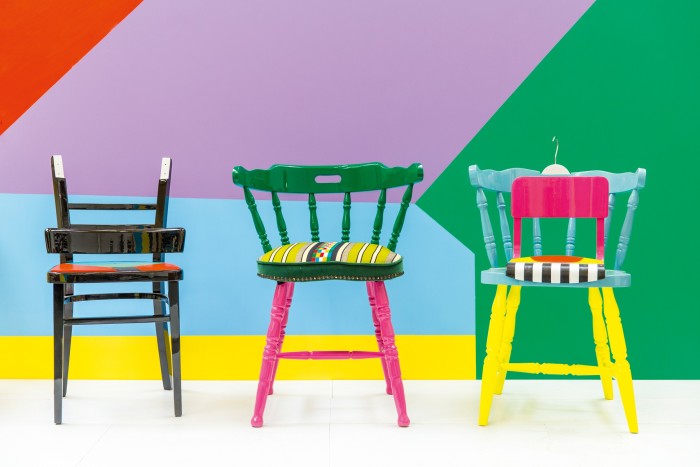
“Appearance is important in my family,” he says. “You dress immaculately, the house is clean, everything is washed – I’ve adopted that mentality in the studio.” Among the African-print headboards and feathered flamingos, the eye is drawn to a large-scale portrait depicting Ilori’s late maternal grandmother, Kemisola, swathed in a geometric print dress, striped scarf and traditional Nigerian gele (headdress). Handbag held close, she sits majestic, omnipotently surveying the creative scene.
Family is at the core of Ilori’s creations. “Every colour in that painting can be found in my studio and my work,” he says of the image by the London artist Inca Jordan. “It’s as though she’s curated her own photoshoot. It shouts of power and pride.”
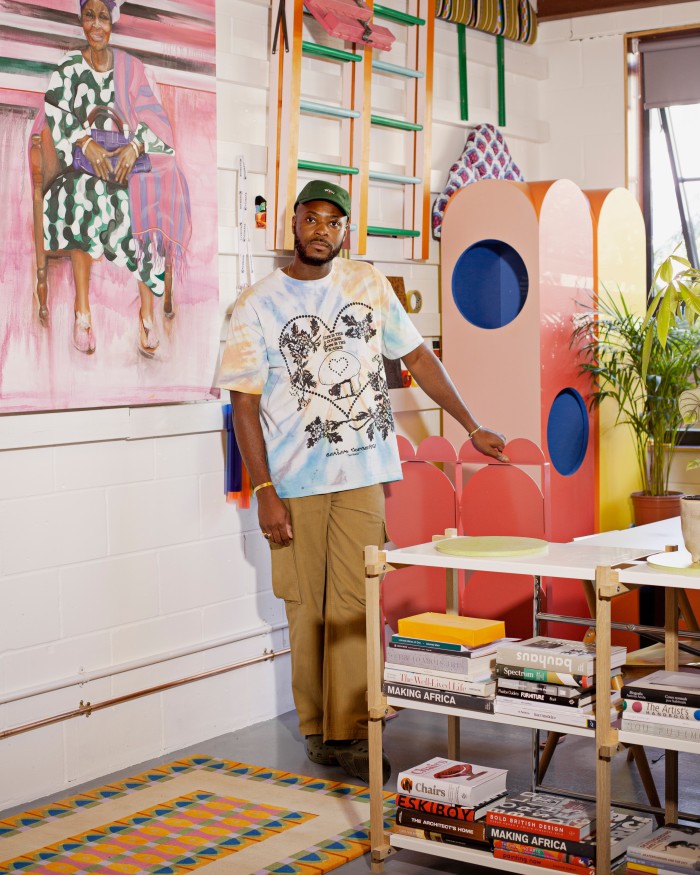
Fresh from an overnight installation for his most recent project – a vibrant trio of Selfridges window displays to mark the sustainability initiative Project Earth – Ilori is at once exhilarated and exhausted. His upcycled tableau of sunflowers forged from hairbrushes and baskets, and sunrises composed of stacks of spinning plates, set against the backdrop of his trademark prints, made the front page of a national newspaper. The work is something of a career watershed. “It’s pushed me to be more environmentally and ethically conscious,” he says of the department store’s stringent sourcing process. “I love creating work in the public realm, it’s so much more inclusive than a gallery where not everyone feels they can go.”
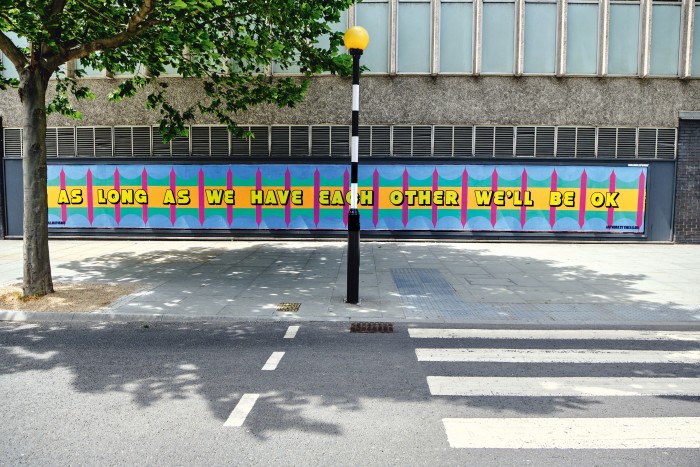
It’s one of a series of high-profile commissions that have propelled Ilori into the public spotlight: from the Thessaly Road Bridge in Nine Elms, which he clad in dazzling enamel motifs, to the “Colour Palace” he created for last year’s Dulwich Pavilion that celebrates his Nigerian heritage. “It frustrates me when people say my work looks Bauhaus or Memphis,” he says, seated at a repurposed card table in tie-dyed Stüssy sweatpants and a pair of psychedelic Crocs. “My work comes from a mesh of different memories and influences – from what my parents wore to Nigerian masquerades and monarchs. Everyone’s narrative is different, but I want to celebrate what it means to be black and British and from a council estate in north London.”
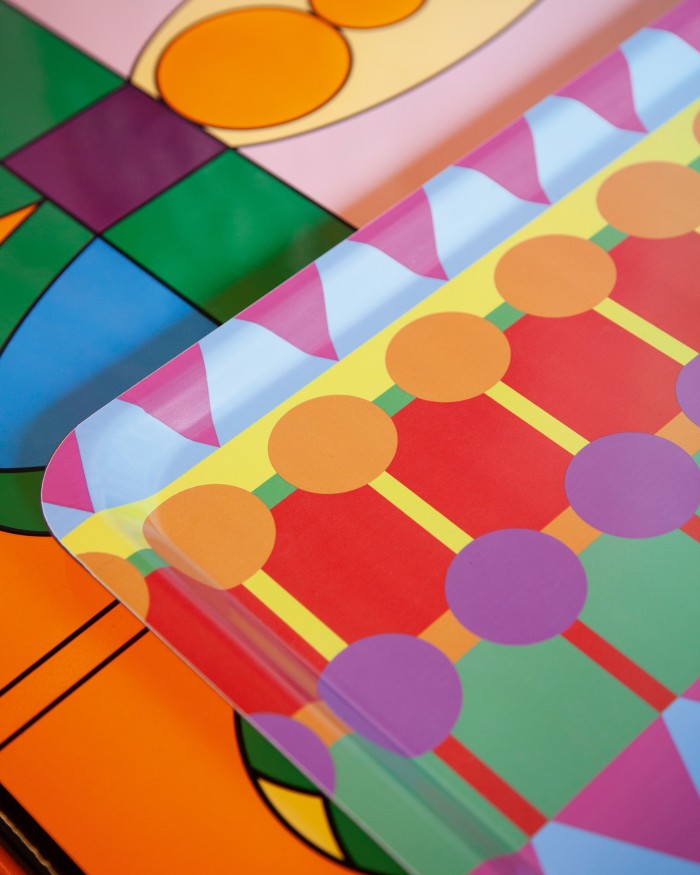
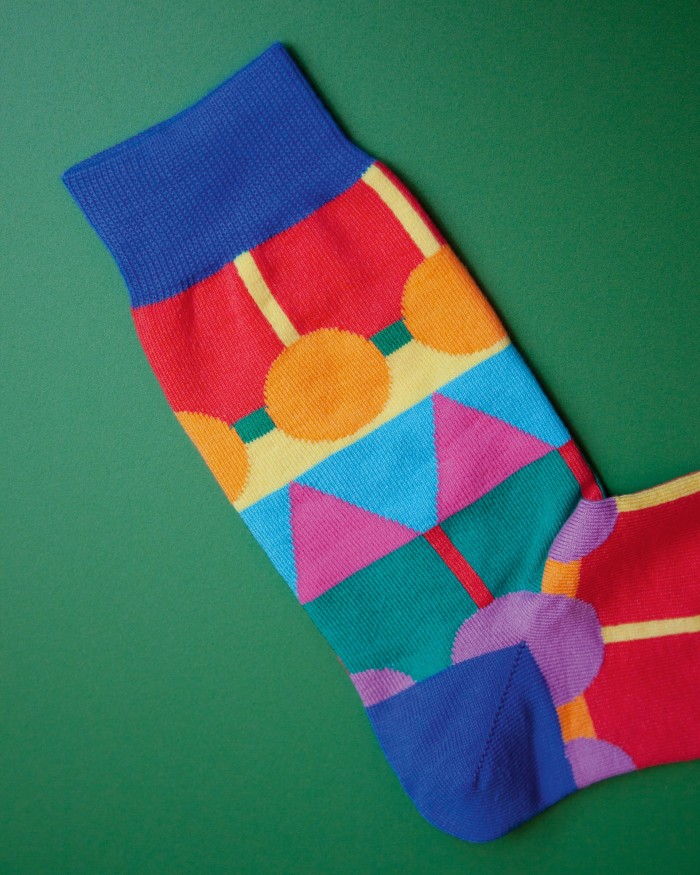
Tales of his grandfather hunting antelope on the family farm in Nigeria instilled in him a wonder for his parents’ homeland, which couldn’t be further from his own childhood, when he shared a bedroom with two of his three siblings on the Essex Road. But it’s this strange confluence of influences on which he has built his oeuvre, taking in visual references from Franz West furniture and his childhood bedroom to beaded Yoruba chairs or the houses of the Ndebele people of Africa. “I’ve always been envious of the richness of my parents’ culture,” he admits. “It’s so expressive. There’s this sense of trying to catch up with it through my work.”
His latest stage in this cultural investigation comes in the form of a homewares collection, which launches this autumn after ruminating for years in his mind. “It’s my lockdown project,” says Ilori of the tableware and accessories, which will be priced from £45. “I’ve always wanted to do homewares, so that’s where I focused while other commissions were on hold.”
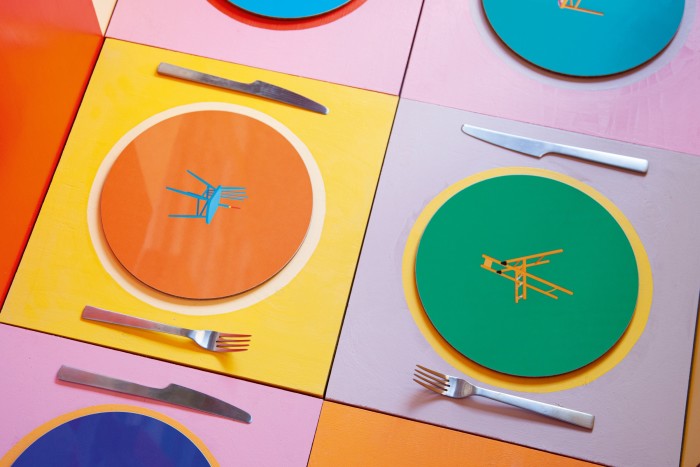
He’s designed jacquard tea towels and sateen cushion covers, which come in cool drawstring dust bags, and created stoneware plates and bowls in graphic spots and shapes. There are enamel mugs and melamine trays, as well as matching napkins and a tablecloth in his dynamic OMI print. Placemats are embellished with illustrations of his upcycled chairs, whose names are drawn from stories and proverbs of Nigerian folklore. Standout items include a portable vitreous glazed kitchen island in collaboration with Vlaze, handbuilt by the Isle of Wight’s architectural enamel specialists AJ Wells & Sons, topped in a colour-clashing print that Ilori created for a project for London City Airport; and a series of bold, bright, oversized Tiverton wool rugs he’s had handwoven in Nepal.
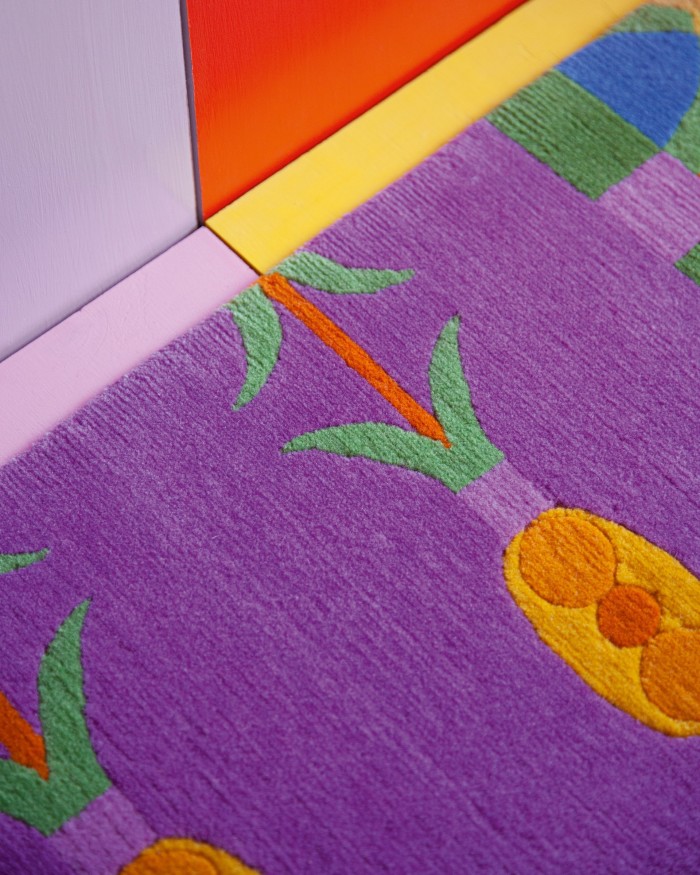
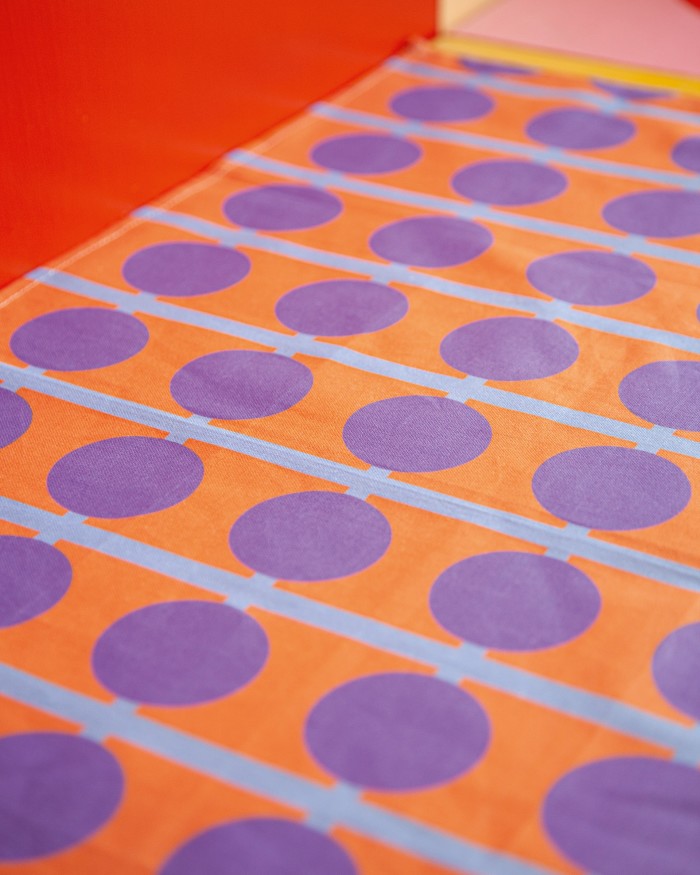
Ilori’s move into interiors has seen the artist take a deep dive into his rich archive of print. “I’ve been around pattern my whole life,” he says. “My parents dressed in traditional Dutch wax fabrics even to go to Tesco, and I saw how joyful they were when they wore them. For those involved in the immigrant experience, patterned textiles are intimately tied to wellbeing.” He points to a chair in his studio that’s upholstered in a finely woven green, gold and silver fabric that would traditionally have clothed Nigerian kings and queens. “Fabrics have status,” he explains. “They speak of success. They would indicate whether you’re rich, or whether you deserve respect. For my parents it was a way of explaining their culture. These patterns invite looks, but also a discussion about where in Africa you’re from.”
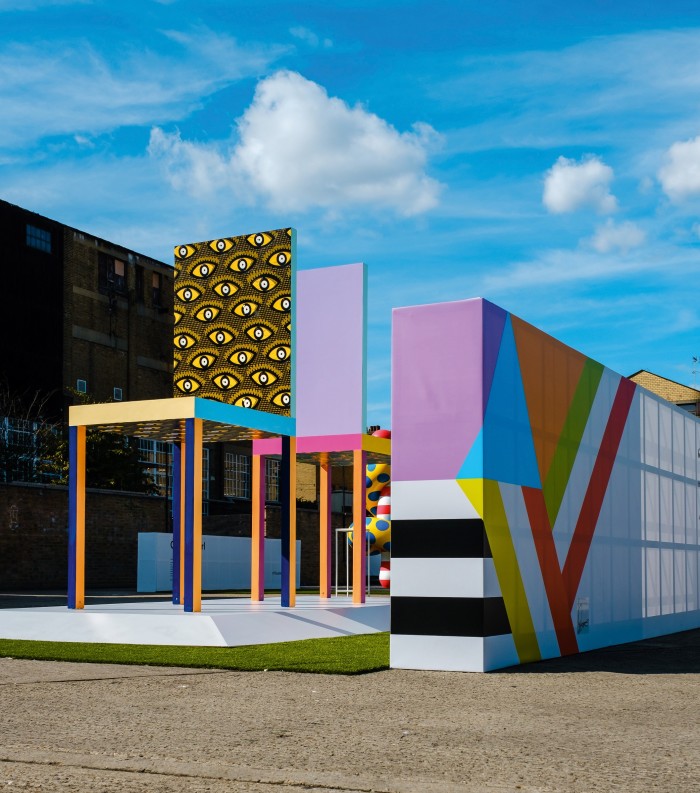
It’s a logical progression for a designer whose first project featured a dining table, and whose practice explores the symbolic power of being seated, to make the move to tableware. “In our family, eating together is always a special occasion,” explains Ilori, who, perhaps optimistically, has hopes of celebrating the collection by hosting a huge Nigerian feast in a nearby Park Royal warehouse. Food conjures a rich ream of memories for Ilori. Saturday mornings were spent at Ridley Road Market in Dalston picking up ingredients for a feast of okra soup, pounded beef, chicken and yam, and vegetable stew, which took his mother a day just to prepare. “Nigerian food is all about the process,” he says. “Mealtimes are big family affairs, created with care and love. Even if you’re going to make jollof rice you need to set aside a few hours.”
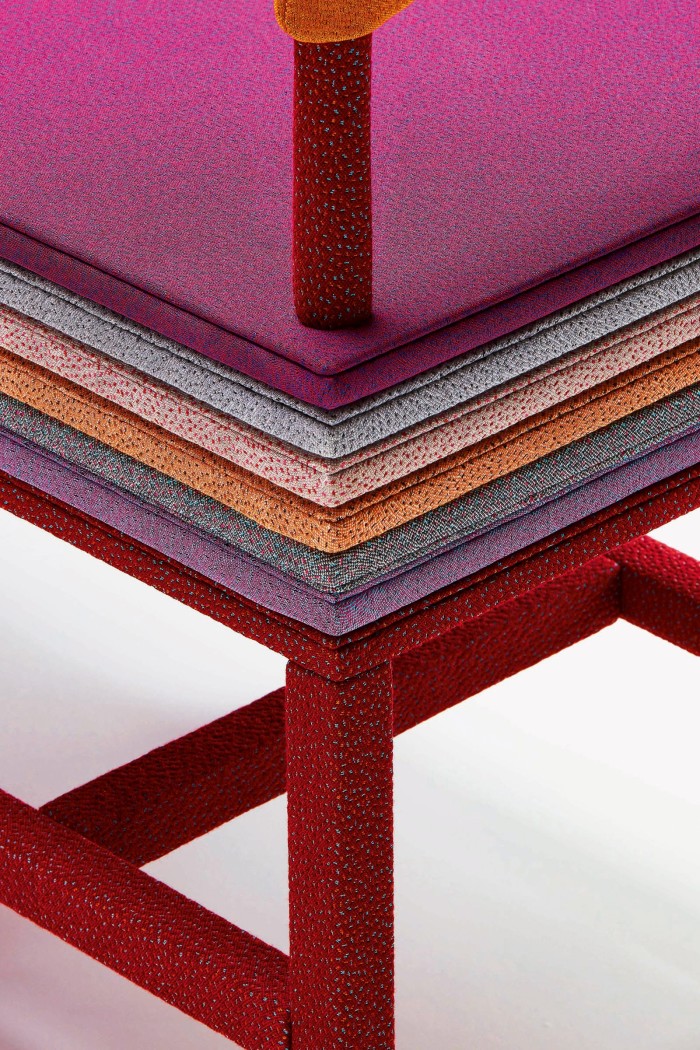
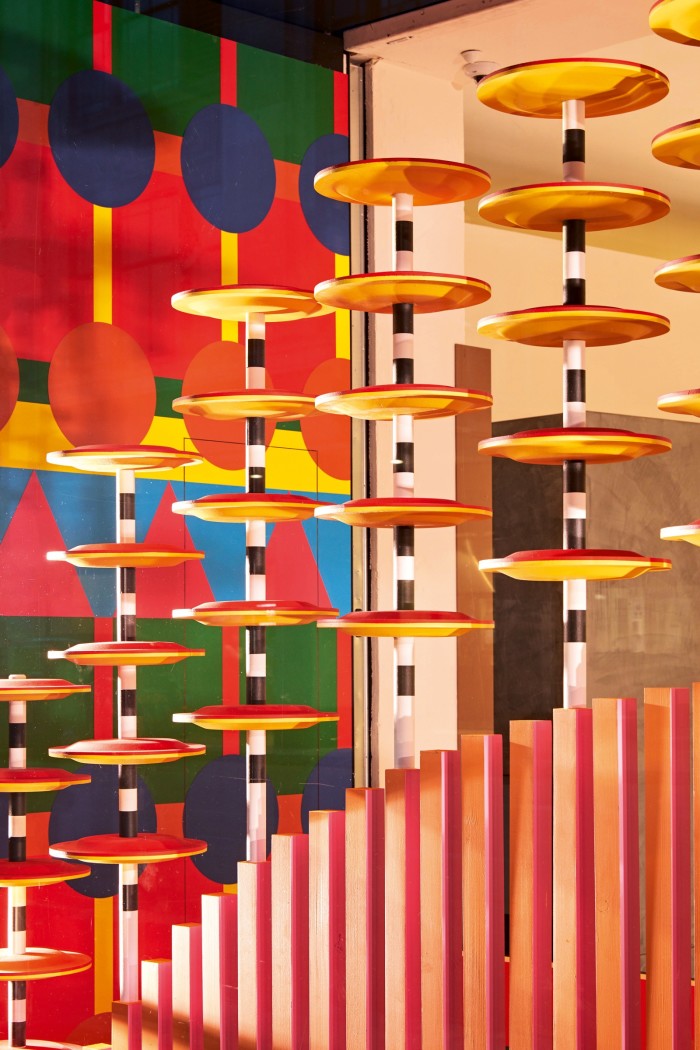
For Ilori, eating is akin to an art form. “The way you eat and choose to share food with people is memorable,” he says. “When you’re seated at the table it’s a moment where you’re free to be yourself.” It’s a subject Ilori explored in 2016 at his solo show Do Good Because of Tomorrow at Milton Keynes Art Centre, which featured a Nollywood Movie Night with Nigerian food prepared by his mum; and again in 2017 when he designed a complete dinner table scene for eight at London’s Now Gallery. Pre-pandemic, there were plans to stage an African takeover of Charleston, the Sussex seat of the Bloomsbury set, featuring an epic exploration of Nigerian food.
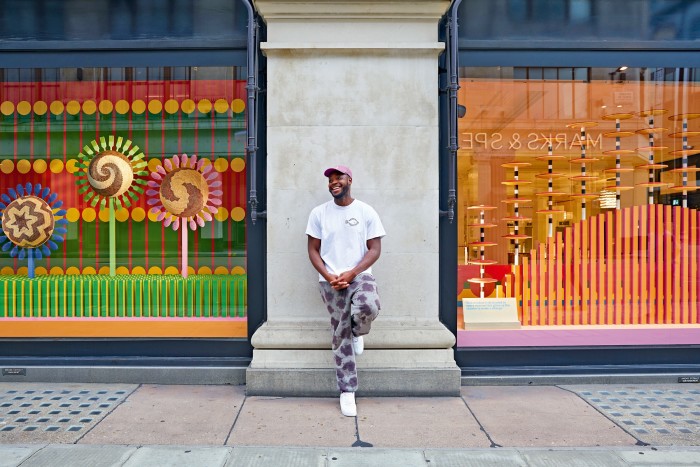
Yet, unlike the large-scale commissions that see his exacting vision carried out in detail, to some extent with homewares he has to cede control. “I don’t know how people will use these pieces or what they will mean to them,” he says. “Tableware is new territory for me and it’s a big experiment – it will be interesting to see if the world needs it.” Ultimately, Ilori sees this collection as a chance to bring his traditions to the table. “I’m trying to give people an experience that brings them into my world,” he says.
yinkailori.com
Comments